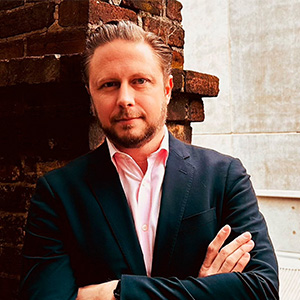


As of this week, almost 1000 Western companies have in part or completely exited Russia. They did so not just to comply with sanctions but as a voluntary reaction to the war. In some ways, it is textbook CSR (corporate social responsibility). They responded to stakeholder pressure, most notably from governments, investors, consumers, competitors, and the general public. Some even made a hefty financial sacrifice.
But I would challenge the legitimacy of these actions. It is my view that the corporate exit from Russia is predicated on rather dubious ethical judgments and contributes to the general skepticism many have about CSR.
First, let’s look at the actual effects. It’s obvious that companies providing goods and services directly used in the war, including financial services that fund it, have an immediate responsibility. But most companies are not in this position. Producing or consuming a McDonald’s Happy Meal, a Renault Clio, or a Prada dress has no effect on the war. In some cases, corporate exit puts Russian employees and communities immediately in distress. The rights and interests of the Russian stakeholders of these Western companies do not seem to matter at all.
Some proponents compare today’s situation to the boycott of South Africa during apartheid. However, the Sullivan principles, then drawn up by General Motors and adopted widely, ended active complicity in human rights violations in Western-owned South African plants. It is hard to establish such a responsibility between McDonald’s burgers or Lego toys and what Russian troops do in Ukraine at this hour.
How far, then, are companies responsible for the actions of governments in their host countries? The most obvious current example is China: even the US has clearly qualified the treatment of the Uighur minority as genocide. Many displaced Uighurs are working as forced labour in the factories of Western companies. No similar call for boycott has been implemented there.
This raises the question of consistency. There are 20 wars ongoing in the world as we speak. Which wars qualify as a reason for a corporate boycott? Saudi Arabia’s role in Yemen has never been scrutinised (with some 20,000 civilian fatalities in Yemen during the period of the Russia-Ukraine war). Such ethical assignments of responsibility to corporations are arbitrary and questionable.
But Ukraine is more relevant for the West. One can frequently hear in mainstream media that Ukrainians ‘look like us’, are ‘Europeans’ with ‘blond hair and blue eyes’ who ‘pray like us’ and ‘drive cars like we do’. Boycotting Russia based on this kind of stakeholder pressure is just pandering to racism.
This leads to a thornier question. Is this war in itself unethical, unjustified, unprovoked, and illegal? On the one hand, the mainstream consensus seems to be that Russia is aggressively attempting to rebuild the Soviet empire, ignoring the territorial integrity of Ukraine.
On the other hand, there are a number of arguments that challenge this. Russia started the military intervention as an attempt to prevent Ukraine from joining NATO. Australia’s defence minister just threatened ‘to go to war’ with the tiny Solomon Islands if they allow China to have a military presence there. If Australia considers what goes on more than 3000 kilometres away from its shores a threat, how can we expect Russia to agree to having NATO right on its doorstep? There are other more historical reasons to empathise somewhat with Russian anxieties.
From the perspective of corporate responsibility, there are two takeaways. First, the moral status of exiting Russia is not clear or consistent, and the fallout from doing so is problematic, to say the least. It is hard to see anything clearly ethical in this.
The second takeaway is that all these public commitments to social responsibility and ethical values as a result of exiting Russia may well be little more than hypocrisy. Corporations take these actions ultimately to remain profitable, in this case by pandering to their Western stakeholders. ‘Woke’ corporations, as Vivek Ramasamy argues, do this because, ultimately, they know that maintaining an ethical veneer is good for the bottom line. Whether exiting Russia will achieve any social good, such as ending the war, is almost beside the point.
It is perfectly legitimate to demand greater social responsibility and ethical conduct from business. We need more of it. But subjecting business to questionable public pressure to undertake responsibilities that only governments and the democratic process can address is the wrong way to get there.
Dirk Matten is Associate Dean, Research at the Schulich School of Business in Toronto, where he is a Professor of Sustainability and holds the Hewlett-Packard Chair in Corporate Social Responsibility. He is in Melbourne at Trinity College for the 2022 Gourlay Ethics in Business Week in May 22–27. Book now to attend a session with Dirk and other business ethics experts.
This article is based off a story by Dirk Matten published by The Conversation.
Related News

A message from Professor Ken Hinchcliff

Quality over quantity: the environmental impact of our clothes

From little things: Trinity community members share their successful business strategies

Meet FS teacher Kristin Vestermark

What's it like for an international student in Melbourne?

Meet our TCAC student committee for 2025

Nakata Brophy winner announced

Nakata Brophy shortlist announced

The fascinating story behind our latest exhibition: Tais, culture & resilience

Residential College student Ravin Desai shares his passion for politics and journey at Trinity

Nakata Brophy 'longlist' announced

Meet Mariana Waqa, the accidental theological scholar

Meet Agatha Chelsea – Indonesian superstar and Trinity College graduate

Learn about the Wellbeing and Inclusivity Committee at Trinity

Meet Michael Dharmawan, a Trinity Foundation Studies dux in 2024

From Albury to Melbourne: Rosie Bradford's story

Foundation Studies alum Rachel Hongxun Zhou

From Foundation Studies to the Residential College to Oxford: Xinran’s story

Meet visiting professors Emeritus Dr Dagmar and Dr Jürgen Eichberger

From the surf coast to Melbourne

1974 vs 2024 for a woman at Trinity: what’s changed and what’s stayed the same?

Meet past FS student Yuxuan Li

King's Birthday Honours 2024

Meet Trinity's aspiring art curator Seb Moore

Meet Paul Oslington, Trinity alum and Director of the St James’ Institute, Sydney

Meet Nakata Brophy prize winner Jasmin McGaughey

Meet Foundation Studies student Gabriella Sim

Anzac Day 2024 – Trinity stories

Meet Foundation Studies student Hanadi Alabdouli

Meet Foundation Studies student Miguel Valmayor

Guest preacher Chris Mulherin on the intersection of science and religion

Meet visiting professor the Hon Justice Joe Williams
.jpg?width=300&height=300&ext=.jpg)
Visit David Frazer's new exhibition: All that you've loved

Pioneering women and the story of Janet Clarke Hall
.jpg?width=300&height=300&ext=.jpg)
Meet Gemma and Frederik Le Mesurier

A love story for Valentine’s Day: Matt Hargreaves and Kirsten Callander

Announcing our 2024 Alum of the Year

Meet economics teacher Tharushi Nissanka

Meet maths teacher Hao Weng

Charmaine Yee named our 2023 FS Alum of the Year

Meet English lecturer Jake Breaux

Meet English teacher Catherine Roberts

The work of visiting professor Justice Janak De Silva

Moving to Trinity from overseas: Katie's story

Meet visiting professor Ron Paterson

Meet Admissions Coordinator Wendy Ngaturi

Meet Academic Programs Manager Michael Pickering

Kate Beggs’s journey from the Great Ocean Road to the heart of Melbourne city

Pursuing a creative passion: from Trinity to Edinburgh to New York

Meet former Foundation Studies student Valerie To
Celebrating IDAHOBIT
Keep the doors open for the future
Trinity Choir tour Europe showcasing international talent
Communicating a new science story
Trinity's Kitchen team: A well-oiled machine
Precious Rametsana: Improving lives through financial empowerment
Former Trinity Warden appointed Head of St Paul’s College, the University of Sydney
Star Trinity athletes awarded Full Blues
Kay Attali – The ‘bloodhound’ with a big heart
Networking your way to a new path and passion
Catching up with Charmaine Yee
Catching Up with Dr Maureen Vincent
Alumnus Of The Year Award Announced
-
News & Stories
- Our Theological School Student President's mission to champion a spiritual and welcoming environment
- Jack reaps the rewards after taking a leap of faith on Trinity College
- Trinity alum named in King's Birthday Honours 2025
- Trinity Deputy & Academic Dean appointed Fellow at Center of Theological Inquiry
- Meet Trinity's aspiring art curator Seb Moore
- Trinity College offers its congratulations to newly elected Archbishop of Melbourne, the Right Reve
- Events
- Art
- Music & Choir
- Campus Development Projects
- Visiting Scholars & Lectureships
- Accommodation for Visitors
- Short Programs
- Work at Trinity
